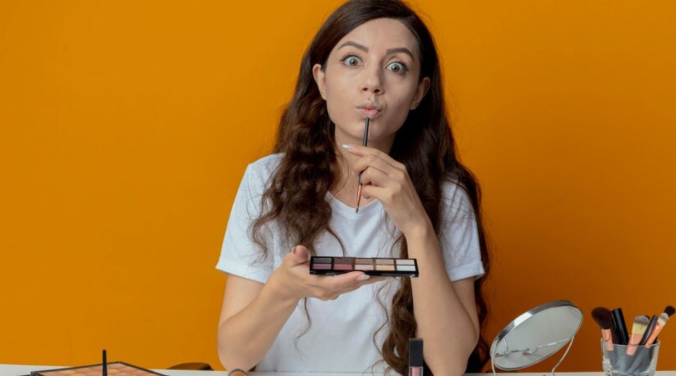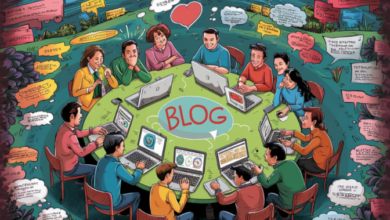Understanding UVFBK: What It Is and Why It Matters for Your Health

UVFBK is a term you might not have heard of before, but it could be important for your health. It stands for Ultraviolet Frequency-Based Knowledge and refers to how certain types of light can impact us. UVFBK is linked to our exposure to ultraviolet (UV) light, which comes from the sun and other sources. Learning about UVFBK can help us understand how we can protect ourselves from harmful UV rays.
In this blog post, we will explore what UVFBK means and why it’s essential to understand its effects. Whether it’s for your skin, eyes, or overall health, knowing about UVFBK can guide you in making smarter choices to stay safe. Let’s dive into the details!
How UVFBK Affects Your Skin and Eyes: What You Need to Know
UVFBK is crucial for understanding how UV light harms our skin and eyes. When you stay in the sun for too long, UV rays can cause sunburn. This happens because the skin gets too much UV radiation, which damages skin cells. Over time, this damage can lead to serious problems, like skin cancer.
The eyes are also at risk from UV light. Too much UV exposure can cause eye problems, like cataracts or macular degeneration. UVFBK helps us understand how the UV rays penetrate our skin and eyes, making it easier to prevent damage. By learning more about UVFBK, you can take steps to protect your skin and eyes from these harmful effects.
Why UVFBK Matters: Protecting Yourself from Harmful UV Rays
UVFBK plays a big role in helping us understand the dangers of UV rays. When you know how UV light affects you, it’s easier to protect yourself. UV rays are strongest when the sun is high in the sky, usually between 10 AM and 4 PM. During these hours, UV exposure can cause serious damage in a short amount of time.
By learning more about UVFBK, you can use simple tools to protect your skin and eyes. Wearing sunscreen is one of the best ways to prevent sunburn and reduce skin damage. Sunglasses that block UV rays can protect your eyes from harmful light. UVFBK reminds us that being aware of these precautions can help keep us safe in the sun.
Top Tips to Stay Safe from UVFBK: Easy Ways to Protect Your Health
To stay safe from UVFBK and harmful UV rays, here are some helpful tips:
- Wear sunscreen: Always apply sunscreen before going outside. Make sure it’s broad-spectrum, meaning it protects against both UVA and UVB rays.
- Wear protective clothing: Clothes, hats, and sunglasses can block UV rays from reaching your skin and eyes.
- Seek shade: If possible, stay in the shade during the hottest part of the day.
- Use UV-blocking sunglasses: These glasses protect your eyes from harmful rays and reduce the risk of eye damage.
By following these tips, you can reduce the harmful effects of UV light and stay safe from UVFBK-related issues.
Understanding UVFBK: How Ultraviolet Light Impacts Your Body
UVFBK helps us understand how ultraviolet light can impact our health. There are three types of UV rays: UVA, UVB, and UVC. Each type of UV light has different effects on the body. UVA rays penetrate deep into the skin and can cause long-term damage. UVB rays are responsible for sunburn and more immediate skin damage. UVC rays are the most dangerous, but they are blocked by the Earth’s atmosphere.
By understanding UVFBK, we can better protect ourselves. UVB rays, for example, are stronger during summer months and at higher altitudes. Knowing this can help you take extra precautions, like wearing extra sunscreen or protective clothing when needed.
UVFBK in Everyday Life: Recognizing Its Impact on Your Health
UVFBK affects us every day, even when we don’t realize it. For example, you can get UV exposure while driving or walking outside. The glass in windows doesn’t block all UV rays, so your skin can still be exposed to harmful light.
- While driving: UV rays can enter through your car windows, so it’s important to wear sunscreen even in the car.
- While walking: On cloudy days, UV rays can still reach your skin, so always be prepared with sunscreen and protective gear.
By recognizing UVFBK’s impact, we can make small changes to reduce our daily UV exposure
The Connection Between UVFBK and Sun Exposure: Why It’s So Important
UVFBK helps us understand the link between UV rays and sun exposure. Sunlight is the primary source of UV light, and too much exposure can cause skin damage. The more you are exposed to UV light, the higher the chances of developing skin issues like premature aging or even skin cancer.
Knowing about UVFBK can also help you manage the time you spend in the sun. For example, if you’re planning to be outside for long periods, take extra steps to protect yourself. Understanding how UV light works can lead to better choices, ensuring you enjoy the outdoors safely.
Conclusion
Understanding UVFBK is important because it helps us know how UV rays from the sun can affect our bodies. By learning about these rays, we can take steps to protect ourselves from skin damage and eye problems. Simple actions like wearing sunscreen, sunglasses, and protective clothing can make a big difference in keeping us safe.
Staying aware of UVFBK is also a great way to protect our health in the long run. Whether we’re spending time outside or just driving in the car, UV rays are always around. By using the right precautions, we can enjoy the outdoors without worrying about harmful effects from the sun.
FAQs
Q: What is UVFBK?
A: UVFBK stands for Ultraviolet Frequency-Based Knowledge. It helps us understand how UV rays from the sun affect our health.
Q: How can UVFBK damage my skin?
A: UVFBK helps us know that too much UV exposure can cause sunburn, skin aging, and even skin cancer over time.
Q: How can I protect myself from UVFBK?
A: You can protect yourself by wearing sunscreen, sunglasses, and protective clothing, and staying in the shade when the sun is strong.
Q: Is UVFBK harmful even on cloudy days?
A: Yes, UV rays can still reach your skin on cloudy days, so it’s important to wear protection even when it’s not sunny.
Q: What are the best times to avoid UVFBK?
A: UV rays are strongest between 10 AM and 4 PM, so it’s best to stay indoors or take extra precautions during these hours.





